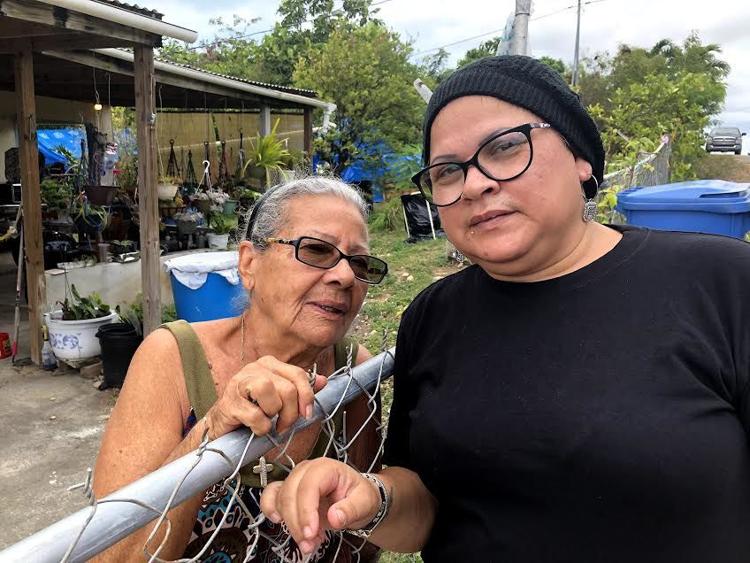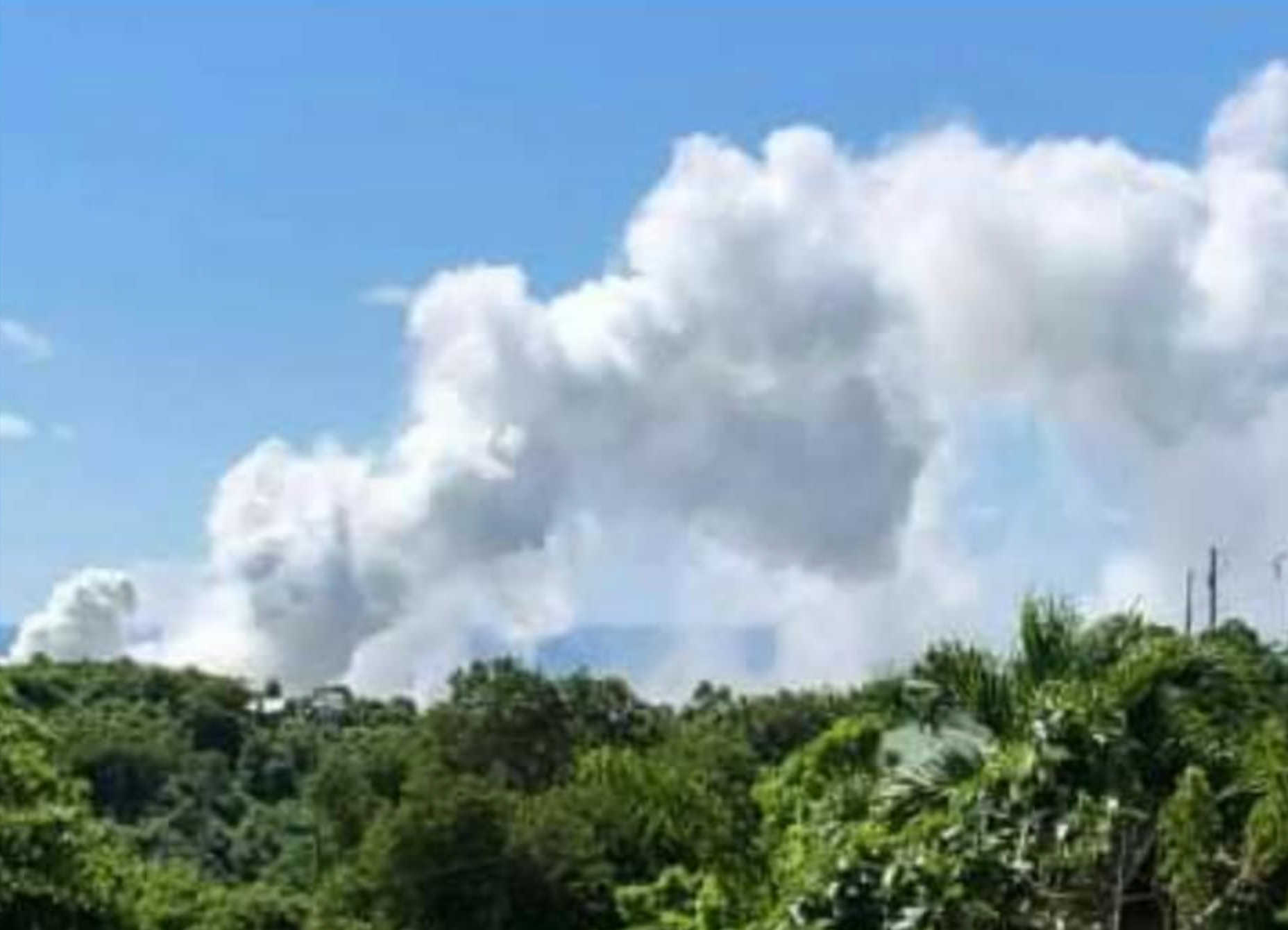CHRISTIANSTED — The U.S. Department of Justice filed a motion on behalf of the Environmental Protection Agency modifying its 2011 consent decree with HOVENSA, the prior owner of St. Croix’s troubled oil refinery, now owned by Limetree Bay Ventures and ArcLight Capital.
The motion requires Limetree to assume some of the operating requirements HOVENSA agreed to abide by in 2011 as a violator of the Clean Air Act.
Two modifications, in particular, strengthen protections to public health and the environment, according to an EPA press release.
One raises the Clean Air Act requirements to present day standards. Another updates the audit and operating requirements for benzene waste and leak-detection to reduce emissions from the refinery’s processing units.
At the same time — a win for local environmental groups — the proposed consent decree aligns emissions standards with Limetree Bay’s lower operating capacity of 200,000 barrels of crude oil per day instead of HOVENSA’S former 500,000. “Modifying this settlement is an important step to ensure the Limetree Bay facility will comply with environmental laws that protect people’s health and to address environmental justice concerns in communities in St. Croix,” EPA acting Regional Administrator Walter Mugdan said. “This settlement reflects EPA’s commitment to ensuring regulated entities like Limetree Bay comply with federal environmental law while enabling economic growth, and we look forward to working closely with nearby communities, as well as with the company itself, to help ensure the proper operation of this facility,” Mugdan said.
Original EPA agreement
Formerly one of the world’s largest oil refineries, HOVENSA originally agreed to invest $700 million over 10 years to install new pollution controls and pay over $5 million in civil penalties for violating the Clean Air Act.
Instead, in 2015 the company petitioned for voluntary relief under Chapter 11 from a debt of more than $186 billion to its owners and a three-year loss of $1.3 billion.
HOVENSA’s owners struck an agreement to sell the refining and storage facilites to ArcLight and Limetree Bay Holdings for $184 million. Part of the sale was to pay off a $40 million claim by the V.I. government.
The modified consent degree transfers some of HOVENSA’s obligations to an environmental response trust, according to the EPA press release.
Established during HOVENSA’s bankruptcy proceedings, the trust today has about $4.5 million in escrow that can be used for Territorial Supplemental Environmental Projects chosen by the Virgin Islands Department of Planning and Natural Resources. Other funds will help the Virgin Islands Water and Power Authority monitor air quality.
Questions as to whether the funds would also address the EPA’s Resource Conservation and Recovery Act requirements as a result of HOVENSA’s Clean Air Act violations, as originally intended, also were not answered as of press time.
Plantwide Applicability Limit permitting
The consent decree modifications do not affect Limetree’s ability to continue its operations, according to the EPA, and comes three weeks after a Plantwide Applicability Limit permit was withdrawn by the EPA on March 25. That permit is being reviewed separately, the agency said.
Issued under the Trump administration but never finalized, the EPA’s PAL permit, as it became known, sparked controversy among environmentalists for allowing Limetree to restart the refinery without a new permit, as though it had never stopped.
Four environmental groups — the St. Croix Environmental Association, Center for Biological Diversity, Natural Resources Defence Council and Sierra Club — challenged the permit days after the renovated refinery resumed operations Feb. 1.
Since then Limetree’s road to renewal has been long, bumpy and costly.
According to a Reuters report Wednesday, the plant has run more than $1 billion over its original budget and well behind the original schedule to begin processing in late 2019. The chief financial officer has resigned, and two other senior managers have reportedly stepped down. Reached on Thursday by The Daily News, one of them, Robert Weldzius, senior vice president of operations, declined to comment on the personnel changes.

Residents’ health concerns
In addition, the EPA continues to look into the flaring incident at the refinery on Feb. 4 that sprayed oil across homes, gardens and vehicles. The oily droplets coated homes in Clifton Hill, contaminating at least 63 cisterns and further stoking residents’ fears about the facility’s threat to public health.
“Not only my health, but others here who suffer from asthma and other ailments. Our No. 1 concern is cancer,” said Maria Otano, one of the Clifton residents who said she briefly drank water from her cistern after the flare. Limetree took responsibility for the incident by cleaning Otano’s roof and those of her neighbors, testing their cisterns, cleaning them out and filling them again.
Otona said she was asked to sign a form stating she was satisfied with the work that was done. “They gave everybody two cases of water every day, but the question of whether it would affect our health never popped up,” she said. “Should people be worried? That’s my main concern.”
The Daily News reporter Suzanne Carlson asked Limetree Bay spokeswoman Erica Parsons about Otano’s concerns, but did not receive an answer. Government House Communications Director Richard Motta Jr. said Limetree is working to safely restart operations.
“At this juncture, nothing Limetree has done other than a couple of controlled mishaps has shown they are not a good corporate partner,” Motta told the Virgin Islands Daily News. “We are trying to achieve two goals. One, that the refinery can safely restart operations in a manner that protects the health and well-being of the residents of St. Croix, and two, that we assume the financial benefits from our refinery operation.”
The EPA’s modified consent decree motion was filed in U.S. District Court in the Virgin Islands and awaits a judge’s ruling.
PRESS RELEASE FROM THE EPA IN NEW YORK
The U.S. Department of Justice, on behalf of the U.S. Environmental Protection Agency (EPA), filed a motion to enter the first modification to a 2011 consent decree with HOVENSA L.L.C., the prior owner of the Limetree Bay facility, located on St. Croix in the U.S. Virgin Islands. The 2011 consent decree resolves alleged Clean Air Act (CAA) violations at the refinery when operated by HOVENSA. Together with EPA’s enforcement and permitting oversight of the facility, the modification will advance the agency’s ongoing efforts to ensure protection of public health and the environment.
“Modifying this settlement is an important step to ensure the Limetree Bay facility will comply with environmental laws that protect people’s health and to address environmental justice concerns in communities in St. Croix,” said EPA acting Regional Administrator Walter Mugdan. “This settlement reflects EPA’s commitment to ensuring regulated entities like Limetree Bay comply with federal environmental law while enabling economic growth, and we look forward to working closely with nearby communities, as well as with the company itself, to help ensure the proper operation of this facility.”
The modification transfers certain of HOVENSA’s obligations under the 2011 consent decree to Limetree Bay Terminals, LLC and Limetree Bay Refining, LLC (Limetree Bay). The modification includes references to updated CAA requirements and updates benzene waste and leak-detection and repair audits and operating requirements, which ensure reduced emissions from refinery equipment and process units. It also makes adjustments to account for Limetree Bay’s lower operating capacity as compared to HOVENSA’s.
The modification also transfers certain obligations of the 2011 consent decree to an environmental response trust. The trust was established during HOVENSA’s bankruptcy proceedings to address Resource Conservation and Recovery Act requirements and to distribute the remaining consent decree-required escrow funds, which are now approximately $4.5 million, to be used for Territorial Supplemental Environmental Projects chosen by the Virgin Islands Department of Natural Resources, and to distribute consent decree-required funds to assist the Virgin Islands Water and Power Authority in air monitoring.
The proposed first modification to the consent decree was lodged in federal court on August 25, 2020 and published for public comment in the Federal Register on August 31, 2020. The motion to enter filed today includes responses to the public comments. It will become effective if the modification is approved by the court. Until that time, the 2011 consent decree remains in effect. A second consent decree modification adjusts a deadline that has already passed to a date later this year. The second modification requires filing, for the record.
Both modifications have no direct relationship to the plantwide applicability limit permit that was withdrawn by EPA on March 25, 2021. That permit is being reviewed separately by EPA. In addition, EPA is looking into the flaring incident at the refinery on February 4, 2021. EPA has already requested detailed information about that incident from Limetree Bay as part of its ongoing investigation.
EPA continues to work with Limetree Bay, which is a key economic engine for the territory, and neither the original consent decree nor the modifications prohibit or permit Limetree Bay’s operation of the refinery. Rather, they provide requirements that Limetree Bay must comply with during operations. The facility must comply with all federal and territorial environmental regulations as well as its operating permits.
Limetree Bay is in a community predominantly made up of people of color and low-income populations who are already disproportionately affected by environmental burdens. These disproportionate burdens present environmental justice concerns, which are a priority for EPA.
To read the motion to enter, the two consent decree modifications and the 2011 consent decree, visit to: https://www.epa.gov/caa-permitting/caa-permits-issued-epa-region-2#palpermits

